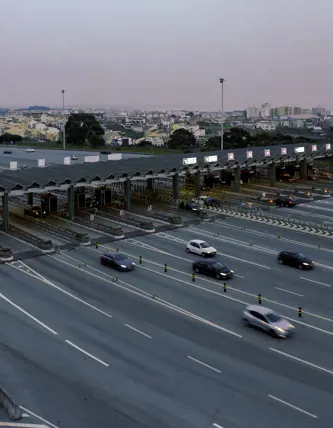
About us
Discover our purpose, values, vision and history.
Brisa on the right track towards decarbonization

The Science Based Targets initiative (SBTi) has approved Brisa’s greenhouse gas (GHG) emission reduction targets. This marks the first time a Portuguese company in the infrastructure sector has confirmed its decarbonization goals and action plans in accordance with the requirements of this international organization.
The SBTi is the leading global authority for validating corporate GHG emissions reduction targets. These targets are aligned with climate science and reflect the combined standards of four major international organizations: CDP (Carbon Disclosure Project), United Nations Global Compact, World Resources Institute (WRI), and World Wide Fund for Nature (WWF).
The main objective of the SBTi is to help companies and financial institutions set decarbonization targets that are consistent with the Paris Agreement goal of limiting global warming to 1.5°C.
Brisa’s targets have been validated for both the short and long term. This approval recognizes the Group’s ambition and commitment in the fight against climate change, aligning with the most ambitious goals of the Paris Agreement and the scientific pathways that limit global warming to 1.5°C.
Brisa has already made significant progress along this path, having reduced its own emissions (Scopes 1 and 2) by 24% between 2021 and 2024.
Brisa’s approved targets include:
The SBTi classified Brisa’s ambition for Scopes 1 and 2 as aligned with a 1.5°C warming trajectory — the highest level of ambition currently recognized.
This commitment exceeds the minimum expectations set by the SBTi, which targets net-zero emissions by 2050. By choosing a more ambitious timeline, Brisa strengthens its leadership in sustainability within the mobility and road infrastructure sector.
António Pires de Lima, CEO of the Brisa Group, emphasizes: "This validation is carried out by SBTi, the international benchmark in this field, and proves the credibility and high standards of the ambition and commitments made by the Brisa Group in the field of climate action and decarbonization of the economy. Our commitment is reflected in the investment we are making in decarbonizing our operations and our value chain, but also in our financing model, which today is already indexed, to the tune of more than one billion euros, to the achievement of our decarbonization objectives."
Long-term commitments and carbon neutrality
Alongside its short-term goals, Brisa also submitted and received approval for its long-term decarbonization targets under the SBTi’s Corporate Net-Zero Standard, the most advanced international framework for long-term decarbonization.
In this context, the company commits to reaching net-zero emissions by 2040, meaning a 90% reduction in absolute GHG emissions across Scopes 1, 2, and 3, using 2021 as the base year.
The approval of these targets marks a key step in Brisa Group’s path toward sustainability. The Group’s investment plan includes measures to meet these goals, such as: implementing energy efficiency solutions — for example, replacing nearly 12,000 highway luminaires with LED lights; electrifying 84% of its vehicle fleet by 2027; and building renewable energy self-generation capacity using photovoltaic panels to cover 25% of its energy consumption by 2029.
This recognition reinforces Brisa’s responsibility and leadership in the energy transition and the development of resilient infrastructure capable of addressing the environmental and climate challenges of the coming decades. Brisa will continue to work closely with its partners, suppliers, and employees to ensure these targets are implemented through concrete and effective actions, contributing to a more sustainable future for all.